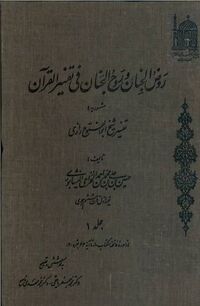One of the elements that distinguishes al-Razi’s thought is his integration of philosophical reasoning with religious doctrine. He deftly navigates complex metaphysical discussions, effectively demonstrating that reason and faith are not mutually exclusive. This synthesis invites believers to engage critically with their faith, fostering a robust intellectual environment. In this context, the question arises: How can modern-day Shia Muslims harness philosophical inquiry to address pressing existential questions?
As we reflect on the legacy of Abu l-Futuh al-Razi, it becomes evident that his teachings extend far beyond mere historical record. They offer a lens through which contemporary challenges can be examined and understood in light of Shia Islam. The interplay between tradition and modernity, the balance of authority and personal interpretation, and the pursuit of ethical living are all central to the ongoing dialogue within the Shia community.
Ultimately, the teachings of Abu l-Futuh al-Razi not only shape individual beliefs but also contribute to the collective identity of Shia Muslims. His works remain a crucial resource in fostering a deep and meaningful engagement with faith. As adherents revisit al-Razi’s insights, they are reminded of their responsibility to cultivate knowledge, engage in ethical conduct, and embrace the complexities of their faith within a modern context.
Tags
Share this on:
[addtoany]


